 Daylight Savings Time, known to our European friends as summer time, was invented for the purpose of extending daylight hours past the end of a normal working day. This, in theory, is supposed to allow one to get a lot more done whilst one can actually see what one is doing. I am one of those folks who actually likes Daylight Savings Time – not because I get any more accomplished, but because I find the immediate darkness of winter a tad depressing.
Daylight Savings Time, known to our European friends as summer time, was invented for the purpose of extending daylight hours past the end of a normal working day. This, in theory, is supposed to allow one to get a lot more done whilst one can actually see what one is doing. I am one of those folks who actually likes Daylight Savings Time – not because I get any more accomplished, but because I find the immediate darkness of winter a tad depressing.
With the recent change to Daylight Savings Time, it occurred to me that, perhaps instead of merely joking about it, we should actually explore increasing the number of hours in one day. Because there simply isn’t enough time.
A wise nurse practitioner once gave me her opinion of why so very many people are taking antidepressants these days. She doesn’t think that people are getting psychologically weaker and just taking the easy way out. She believes it is because the human brain was not intended to take on the level of stress – due to multitasking – that we load on it in our very busy society.
People once lived simply. They got up – after a full night’s sleep. Presumably, more folks had a good night’s rest due to the lack of TVs, video games, and other electronic distractions. Some of you who have ever forgotten to pay the electric bill may have discovered this for yourself. They ate breakfast – because the kind of work they would be doing required it. Then they went about their day and worked – the physical kind. Because physical work reduces stress, they worked out many of their frustrations. Then they went home. Where, because they didn’t have telephones, cell phones, computers, passive entertainment, etc., they passed their time actually talking to their families. Connecting to their loved ones. Discussing their difficulties. Perhaps reading a book or writing a letter. Before too long, it was dark, and they went to bed – repeating the cycle over again.
They were not jumping in the car, racing to take Child A to dance class and Child B to soccer practice. They weren’t on hold trying to get their cell and TV service switched. They weren’t filling out paperwork or online forms for the million things we must do each day. They worked hard, yes. Very hard. But they didn’t multi-task to the extent we do today. So, despite all that needed to be done in their lives, their tasks didn’t increase in complexity from one moment to the next.
 Contrast that with today’s world. In the course of my day, I arrive to work, observe the bells, teach, discipline, talk to parents, answer the incessantly ringing phone, order books, process books, utilize 4 to 5 completely different databases/software programs, email multiple persons, copy, scan, direct aides, assist teachers, proofread, talk to students, recommend books, and so much more. I have no doubt that most of you experience days similar to mine. All while keeping in the back of your mind who you have to call tonight, what meeting you must attend, which doctor’s appointment to go to, which items you must buy at the grocery store, your child’s band concert, the birthday gift you must order online, the reservations you must make, get an oil change, pick up prescriptions, etc.
Contrast that with today’s world. In the course of my day, I arrive to work, observe the bells, teach, discipline, talk to parents, answer the incessantly ringing phone, order books, process books, utilize 4 to 5 completely different databases/software programs, email multiple persons, copy, scan, direct aides, assist teachers, proofread, talk to students, recommend books, and so much more. I have no doubt that most of you experience days similar to mine. All while keeping in the back of your mind who you have to call tonight, what meeting you must attend, which doctor’s appointment to go to, which items you must buy at the grocery store, your child’s band concert, the birthday gift you must order online, the reservations you must make, get an oil change, pick up prescriptions, etc.
It’s not what our minds and bodies were designed to do. Please do not misunderstand me. I am by no means a nature girl and would not be the least bit thrilled if you invited me to ditch it all and live on a farming commune. I like the modern world very much thank you. But it doesn’t mean this was what nature intended for me. So, in that nurse practitioner’s view, antidepressants are helping people’s brains to adjust to unnatural circumstances. And, while I personally am not taking antidepressants, I happen to think she is correct about the unnatural mental burdens of the modern world and the need for modern medicine to alleviate it sometimes.
I thought she was correct years ago when she first said it. But now it is beginning to take on new truth. Callum has been having six private therapy sessions and one Early Steps infant child development specialist session a week. He has to return for a look at his ear tubes. We need to meet with the doctor to discuss trying him on melatonin. Which brings to mind the insurance fiascos I have been having and the three separate phone calls I am supposed to make to 1-800 numbers constantly busy. I am supposed to meet with a CARD representative soon and follow up through the university regarding behavioral therapy. Last week he was diagnosed by an out of town specialist and yesterday was his IEP. We are supposed to model language at all times, keep non-engaged stimming to a minimum, train him to tolerate joint attention type activities for increasing periods of time, attempt to engage him with the books he is completely uninterested with, use PECS, engage him with the iPad, and on and on and on. All this while doing all the parenting things we would already normally be doing for both him and his typically developing – though exhaustively precocious – 4 year old sister. While I’m working full-time and my husband is working on his degree.
I am not complaining about parenthood. I am so very blessed to have my beloved little stinkers and know it. But I am complaining about the lack of hours in the day to get done everything that must get done and still have time to sleep, catch up with loved ones, feel like a human being. I am complaining about the ever-increasing speed and complexity of our lives. Because the world wants way too much. It wants too much if you aren’t parenting a special needs child or being a caregiver in some other capacity. But, if you are, all of those must-dos for a loved one who cannot do them for themselves build up into a cacophony of mental strain that can cause insomnia, depression, lack of immunity, and exhaustion.
In researching a university behavioral therapy study for my son, I found another study being done by the same department suggesting that depressed mothers complete less child interaction homework than non-depressed mothers. It occurred to me that, perhaps, the depression isn’t causing less therapeutic homework. Maybe those mothers are depressed because there aren’t enough hours in the day to do said homework. I know that I wouldn’t likely be posting to you if insomnia weren’t aiding my writing time. There simply aren’t enough hours in the day. I have felt enormous guilt over the things that I don’t have the time or energy to accomplish. The extras I can no longer take on at work. The repeated requests to have to take time off to go to this meeting, that doctor, or whatever keeps coming.
And the hard reality is that the world is too busy creating new demands upon itself to worry about how we are keeping all the juggling balls in the air.
No, I don’t want more daylight with my hours. I want more hours with my daylight.
Years ago, I read a poem by the Israeli poet Yehuda Amichai titled “A Man in His Life”. It is about all the things we must do that we do not have time for in our limited existence on Earth. I’ve read a few different translations* of it, but this one is the most beautiful to me:
“A Man in His Life”
A man in his life has no time to have
Time for everything.
He has no room to have room
For every desire. Ecclesiastes was wrong to claim that.
A man has to hate and love all at once,
With the same eyes to cry and to laugh
With the same hands to throw stones
And to gather them,
Make love in war and war in love.
And hate and forgive and remember and forget
And order and confuse and eat and digest
What long history does
In so many years.
A man in his life has no time.
When he loses he seeks
When he finds he forgets
When he forgets he loves
When he loves he begins forgetting.
And his soul is knowing
And very professional,
Only his body remains amateur
Always. It tries and fumbles.
He doesn’t learn and gets confused,
Drunk and blind in his pleasures and pains.
 In autumn, he will die like a fig,
In autumn, he will die like a fig,
Shriveled, sweet, full of himself.
The leaves dry out on the ground,
And the naked branches point
To the place where there is time for everything.
* Translated from the Hebrew by Benjamin Harshav and Barbara Harshav
Like this:
Like Loading...
 “So, I guess I’m writing this now to tell the autistic people who are reading this that I, too, am not your enemy. I am not afraid of autism; I do not hate autism, and I can help bridge the gap between our two groups. I want to learn from you, and I want to stand beside you as you fight for your rights. You are my child’s future and I want to help you as you make the world a better place for yourselves; and for him.”
“So, I guess I’m writing this now to tell the autistic people who are reading this that I, too, am not your enemy. I am not afraid of autism; I do not hate autism, and I can help bridge the gap between our two groups. I want to learn from you, and I want to stand beside you as you fight for your rights. You are my child’s future and I want to help you as you make the world a better place for yourselves; and for him.” I have always been a reader. I read my first non-illustrated juvenile paperback novel in the end of first grade. It was some kind of a mystery involving danger and a treehouse. I loved being sucked into another world. And I would often, during required nap time, lie awake and make up new stories for beloved characters. By the time I entered middle school, I was devouring a teen novel or two a day (usually 80s series books like Dark Forces, Twilight – not THE Twilight, and Sweet Dreams) before moving on to popular adult fiction. I loved reading and writing and couldn’t get enough.
I have always been a reader. I read my first non-illustrated juvenile paperback novel in the end of first grade. It was some kind of a mystery involving danger and a treehouse. I loved being sucked into another world. And I would often, during required nap time, lie awake and make up new stories for beloved characters. By the time I entered middle school, I was devouring a teen novel or two a day (usually 80s series books like Dark Forces, Twilight – not THE Twilight, and Sweet Dreams) before moving on to popular adult fiction. I loved reading and writing and couldn’t get enough. They do say confession is good for the soul. So here is where I am going to do the Literary Walk of Shame. Go ahead. Ask me what I’ve been reading for the past six or seven years. Fine. I’ll just say it.
They do say confession is good for the soul. So here is where I am going to do the Literary Walk of Shame. Go ahead. Ask me what I’ve been reading for the past six or seven years. Fine. I’ll just say it.
 The nice thing about having your own blog is that you get to declare things with no oversight committee. So, today I am declaring my father – 2012 Flappiness Is Autism Grandparent of the Year.
The nice thing about having your own blog is that you get to declare things with no oversight committee. So, today I am declaring my father – 2012 Flappiness Is Autism Grandparent of the Year. 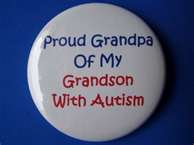 8. He truly enjoys his grandson. When he visits, he delights in the child Callum is right now – rather than adopting The Look of Tragedy every time he sees him. It’s important for a child to not only be loved, but to be liked just as he is. And, because he accepts my son for the wonderful little person he already is – rather than waiting to see who he will become – he is able to enjoy his uniqueness as well. When Callum does something remarkable – something that can be attributed to autistic traits – he gets a kick out of it. And although, like me, he worries about him, he also finds him fascinating. That’s unconditional love, with the stress on — unconditional. 🙂
8. He truly enjoys his grandson. When he visits, he delights in the child Callum is right now – rather than adopting The Look of Tragedy every time he sees him. It’s important for a child to not only be loved, but to be liked just as he is. And, because he accepts my son for the wonderful little person he already is – rather than waiting to see who he will become – he is able to enjoy his uniqueness as well. When Callum does something remarkable – something that can be attributed to autistic traits – he gets a kick out of it. And although, like me, he worries about him, he also finds him fascinating. That’s unconditional love, with the stress on — unconditional. 🙂 This is a guest post by Leah Kelley of
This is a guest post by Leah Kelley of 
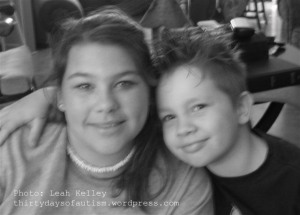
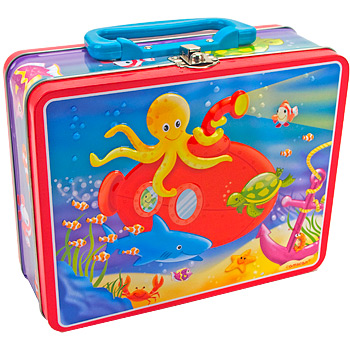 Two years ago, my husband and I took our daughter school supply shopping for the first time. Armed with list in hand, we searched for the requisite items, allowing her to pick out the colors and designs. We were nervous about her first day. I was emotional, wavering between excitement and pride and fear of putting my precious little girl into someone else’s hands. We talked it up to her and made a big deal out it, allowing her to choose a special first day outfit and hair clips. Then we walked her in to her classroom, helped her find her cubby and seat, kissed her goodbye, and left. I teared up as I left, like many mothers – but knew in my heart all would be well. And at the end of her day, we delighted in hearing from her about each and every new experience.
Two years ago, my husband and I took our daughter school supply shopping for the first time. Armed with list in hand, we searched for the requisite items, allowing her to pick out the colors and designs. We were nervous about her first day. I was emotional, wavering between excitement and pride and fear of putting my precious little girl into someone else’s hands. We talked it up to her and made a big deal out it, allowing her to choose a special first day outfit and hair clips. Then we walked her in to her classroom, helped her find her cubby and seat, kissed her goodbye, and left. I teared up as I left, like many mothers – but knew in my heart all would be well. And at the end of her day, we delighted in hearing from her about each and every new experience. Dear Friend Hesitant to Interact With My Special Needs Child:
Dear Friend Hesitant to Interact With My Special Needs Child: Trying to figure out what motivates a special needs child can be complex. To get a picture of that, you need three (or more) lenses. You need the original camera lens itself to take a simple standard picture. Then you need a second lens that filters for special needs – autism, Down Syndrome, etc. You might need, depending on how many special needs conditions the child has, several such lenses. Finally, you need a lens that enhances that child as an individual. Because, like everyone else, special needs kids have their own temperaments, interests, fears, etc. So, to get an accurate picture of a child with special needs, you have to take a picture with all three lenses at the same time. For if you remove one of the lenses, the picture does not reflect the true child.
Trying to figure out what motivates a special needs child can be complex. To get a picture of that, you need three (or more) lenses. You need the original camera lens itself to take a simple standard picture. Then you need a second lens that filters for special needs – autism, Down Syndrome, etc. You might need, depending on how many special needs conditions the child has, several such lenses. Finally, you need a lens that enhances that child as an individual. Because, like everyone else, special needs kids have their own temperaments, interests, fears, etc. So, to get an accurate picture of a child with special needs, you have to take a picture with all three lenses at the same time. For if you remove one of the lenses, the picture does not reflect the true child.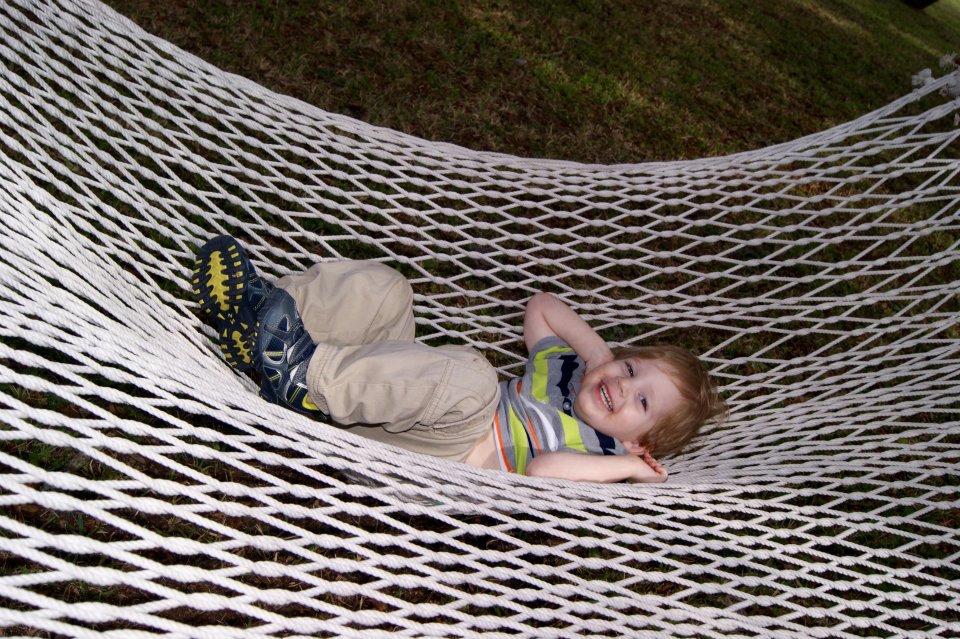 And then you will have a clear picture of my child. A child like every other –yet not. A child who loves, laughs, plays, snuggles, fears, delights, and enjoys cookies as much as any other. He may do all those things differently. But he does do them. And knowing him and forging a relationship with him will change both you and him for the better. For not only is he worth you knowing, I happen to think you are worth him knowing. 🙂
And then you will have a clear picture of my child. A child like every other –yet not. A child who loves, laughs, plays, snuggles, fears, delights, and enjoys cookies as much as any other. He may do all those things differently. But he does do them. And knowing him and forging a relationship with him will change both you and him for the better. For not only is he worth you knowing, I happen to think you are worth him knowing. 🙂 Daylight Savings Time, known to our European friends as summer time, was invented for the purpose of extending daylight hours past the end of a normal working day. This, in theory, is supposed to allow one to get a lot more done whilst one can actually see what one is doing. I am one of those folks who actually likes Daylight Savings Time – not because I get any more accomplished, but because I find the immediate darkness of winter a tad depressing.
Daylight Savings Time, known to our European friends as summer time, was invented for the purpose of extending daylight hours past the end of a normal working day. This, in theory, is supposed to allow one to get a lot more done whilst one can actually see what one is doing. I am one of those folks who actually likes Daylight Savings Time – not because I get any more accomplished, but because I find the immediate darkness of winter a tad depressing. Contrast that with today’s world. In the course of my day, I arrive to work, observe the bells, teach, discipline, talk to parents, answer the incessantly ringing phone, order books, process books, utilize 4 to 5 completely different databases/software programs, email multiple persons, copy, scan, direct aides, assist teachers, proofread, talk to students, recommend books, and so much more. I have no doubt that most of you experience days similar to mine. All while keeping in the back of your mind who you have to call tonight, what meeting you must attend, which doctor’s appointment to go to, which items you must buy at the grocery store, your child’s band concert, the birthday gift you must order online, the reservations you must make, get an oil change, pick up prescriptions, etc.
Contrast that with today’s world. In the course of my day, I arrive to work, observe the bells, teach, discipline, talk to parents, answer the incessantly ringing phone, order books, process books, utilize 4 to 5 completely different databases/software programs, email multiple persons, copy, scan, direct aides, assist teachers, proofread, talk to students, recommend books, and so much more. I have no doubt that most of you experience days similar to mine. All while keeping in the back of your mind who you have to call tonight, what meeting you must attend, which doctor’s appointment to go to, which items you must buy at the grocery store, your child’s band concert, the birthday gift you must order online, the reservations you must make, get an oil change, pick up prescriptions, etc. In autumn, he will die like a fig,
In autumn, he will die like a fig,
 I used to believe that clarity was epiphanic. As in, you don’t understand and then –presto whammo! – you have an experience, an epiphany, that brings about full insight and you are that much wiser for it. I know better now. Parenting a child with special needs is good for that, teaching you all kinds of lessons you never volunteered to learn.
I used to believe that clarity was epiphanic. As in, you don’t understand and then –presto whammo! – you have an experience, an epiphany, that brings about full insight and you are that much wiser for it. I know better now. Parenting a child with special needs is good for that, teaching you all kinds of lessons you never volunteered to learn.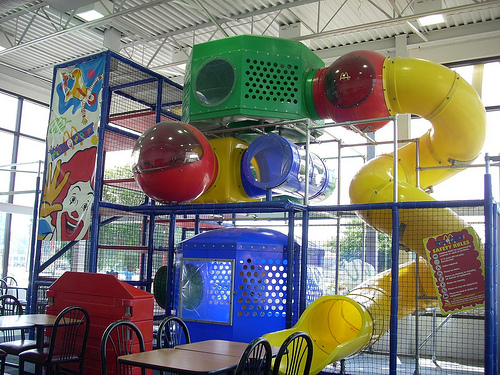 And then Callum took an interest in all of the tables nearby. He started walking up to them, reaching for their food and drinks. All of the parents waved away my apologies and smiled at Callum, flapping away. Not one single soul rudely stared or showed any kind of disapproval.
And then Callum took an interest in all of the tables nearby. He started walking up to them, reaching for their food and drinks. All of the parents waved away my apologies and smiled at Callum, flapping away. Not one single soul rudely stared or showed any kind of disapproval.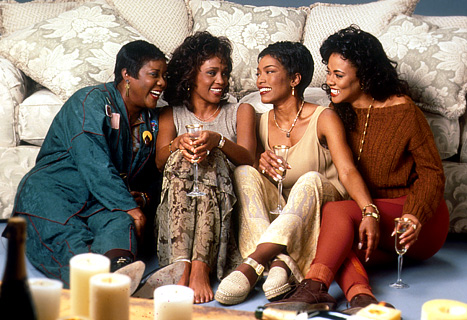 For, unlike it is portrayed in books and film, clarity isn’t always patient enough to wait around for its owner to take out her journal, drink wine with a group of witty and insightful friends, or have an epiphany in the safety of her therapist’s office. Sometimes clarity comes screaming up to you and knocks you over at the playground, the grocery store, or waiting for the light to change. And there is nothing to do but reach in and remove the outermost layer, take a good look at it, keep calm, and carry on. Somehow I’m going to have to steel myself to not flee from the playground. Because, truly, the only person actually upset was me. Worried about pain that has not yet come to pass – and in doing so – forgetting to relax, breathe, and simply live. To not sweat the little things. To climb up the slide backwards. To crank up the radio.
For, unlike it is portrayed in books and film, clarity isn’t always patient enough to wait around for its owner to take out her journal, drink wine with a group of witty and insightful friends, or have an epiphany in the safety of her therapist’s office. Sometimes clarity comes screaming up to you and knocks you over at the playground, the grocery store, or waiting for the light to change. And there is nothing to do but reach in and remove the outermost layer, take a good look at it, keep calm, and carry on. Somehow I’m going to have to steel myself to not flee from the playground. Because, truly, the only person actually upset was me. Worried about pain that has not yet come to pass – and in doing so – forgetting to relax, breathe, and simply live. To not sweat the little things. To climb up the slide backwards. To crank up the radio. 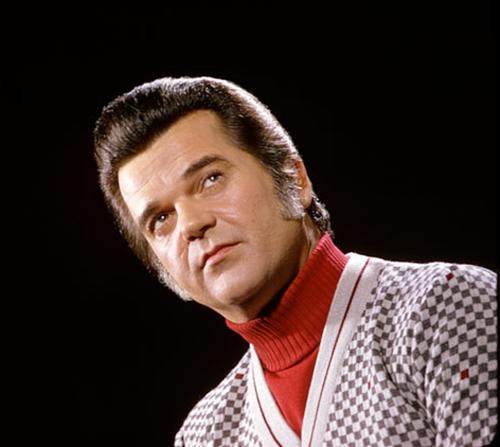 So this morning, on classic country, I hear Conway Twitty’s ragged baritone take on new meaning:
So this morning, on classic country, I hear Conway Twitty’s ragged baritone take on new meaning:



